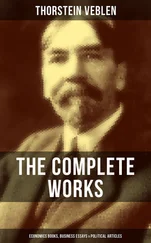Such was the discussion, Crito; and after a few more words had passed between us we went away. I hope that you will come to them with me, since they say that they are able to teach any one who will give them money; no age or want of capacity is an impediment. And I must repeat one thing which they said, for your especial benefit,—that the learning of their art did not at all interfere with the business of money-making.
CRITO: Truly, Socrates, though I am curious and ready to learn, yet I fear that I am not like-minded with Euthydemus, but one of the other sort, who, as you were saying, would rather be refuted by such arguments than use them in refutation of others. And though I may appear ridiculous in venturing to advise you, I think that you may as well hear what was said to me by a man of very considerable pretensions—he was a professor of legal oratory— who came away from you while I was walking up and down. ‘Crito,’ said he to me, ‘are you giving no attention to these wise men?’ ‘No, indeed,’ I said to him; ‘I could not get within hearing of them—there was such a crowd.’ ‘You would have heard something worth hearing if you had.’ ‘What was that?’ I said. ‘You would have heard the greatest masters of the art of rhetoric discoursing.’ ‘And what did you think of them?’ I said. ‘What did I think of them?’ he said:—‘theirs was the sort of discourse which anybody might hear from men who were playing the fool, and making much ado about nothing.’ That was the expression which he used. ‘Surely,’ I said, ‘philosophy is a charming thing.’ ‘Charming!’ he said; ‘what simplicity! philosophy is nought; and I think that if you had been present you would have been ashamed of your friend—his conduct was so very strange in placing himself at the mercy of men who care not what they say, and fasten upon every word. And these, as I was telling you, are supposed to be the most eminent professors of their time. But the truth is, Crito, that the study itself and the men themselves are utterly mean and ridiculous.’ Now censure of the pursuit, Socrates, whether coming from him or from others, appears to me to be undeserved; but as to the impropriety of holding a public discussion with such men, there, I confess that, in my opinion, he was in the right.
SOCRATES: O Crito, they are marvellous men; but what was I going to say? First of all let me know;—What manner of man was he who came up to you and censured philosophy; was he an orator who himself practises in the courts, or an instructor of orators, who makes the speeches with which they do battle?
CRITO: He was certainly not an orator, and I doubt whether he had ever been into court; but they say that he knows the business, and is a clever man, and composes wonderful speeches.
SOCRATES: Now I understand, Crito; he is one of an amphibious class, whom I was on the point of mentioning—one of those whom Prodicus describes as on the border-ground between philosophers and statesmen—they think that they are the wisest of all men, and that they are generally esteemed the wisest; nothing but the rivalry of the philosophers stands in their way; and they are of the opinion that if they can prove the philosophers to be good for nothing, no one will dispute their title to the palm of wisdom, for that they are themselves really the wisest, although they are apt to be mauled by Euthydemus and his friends, when they get hold of them in conversation. This opinion which they entertain of their own wisdom is very natural; for they have a certain amount of philosophy, and a certain amount of political wisdom; there is reason in what they say, for they argue that they have just enough of both, and so they keep out of the way of all risks and conflicts and reap the fruits of their wisdom.
CRITO: What do you say of them, Socrates? There is certainly something specious in that notion of theirs.
SOCRATES: Yes, Crito, there is more speciousness than truth; they cannot be made to understand the nature of intermediates. For all persons or things, which are intermediate between two other things, and participate in both of them—if one of these two things is good and the other evil, are better than the one and worse than the other; but if they are in a mean between two good things which do not tend to the same end, they fall short of either of their component elements in the attainment of their ends. Only in the case when the two component elements which do not tend to the same end are evil is the participant better than either. Now, if philosophy and political action are both good, but tend to different ends, and they participate in both, and are in a mean between them, then they are talking nonsense, for they are worse than either; or, if the one be good and the other evil, they are better than the one and worse than the other; only on the supposition that they are both evil could there be any truth in what they say. I do not think that they will admit that their two pursuits are either wholly or partly evil; but the truth is, that these philosopher- politicians who aim at both fall short of both in the attainment of their respective ends, and are really third, although they would like to stand first. There is no need, however, to be angry at this ambition of theirs— which may be forgiven; for every man ought to be loved who says and manfully pursues and works out anything which is at all like wisdom: at the same time we shall do well to see them as they really are.
CRITO: I have often told you, Socrates, that I am in a constant difficulty about my two sons. What am I to do with them? There is no hurry about the younger one, who is only a child; but the other, Critobulus, is getting on, and needs some one who will improve him. I cannot help thinking, when I hear you talk, that there is a sort of madness in many of our anxieties about our children:—in the first place, about marrying a wife of good family to be the mother of them, and then about heaping up money for them— and yet taking no care about their education. But then again, when I contemplate any of those who pretend to educate others, I am amazed. To me, if I am to confess the truth, they all seem to be such outrageous beings: so that I do not know how I can advise the youth to study philosophy.
SOCRATES: Dear Crito, do you not know that in every profession the inferior sort are numerous and good for nothing, and the good are few and beyond all price: for example, are not gymnastic and rhetoric and money- making and the art of the general, noble arts?
CRITO: Certainly they are, in my judgment.
SOCRATES: Well, and do you not see that in each of these arts the many are ridiculous performers?
CRITO: Yes, indeed, that is very true.
SOCRATES: And will you on this account shun all these pursuits yourself and refuse to allow them to your son?
CRITO: That would not be reasonable, Socrates.
SOCRATES: Do you then be reasonable, Crito, and do not mind whether the teachers of philosophy are good or bad, but think only of philosophy herself. Try and examine her well and truly, and if she be evil seek to turn away all men from her, and not your sons only; but if she be what I believe that she is, then follow her and serve her, you and your house, as the saying is, and be of good cheer.
Конец ознакомительного фрагмента.
Текст предоставлен ООО «ЛитРес».
Прочитайте эту книгу целиком, купив полную легальную версию на ЛитРес.
Безопасно оплатить книгу можно банковской картой Visa, MasterCard, Maestro, со счета мобильного телефона, с платежного терминала, в салоне МТС или Связной, через PayPal, WebMoney, Яндекс.Деньги, QIWI Кошелек, бонусными картами или другим удобным Вам способом.












